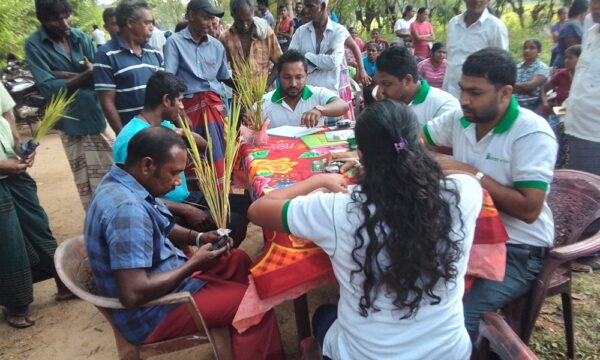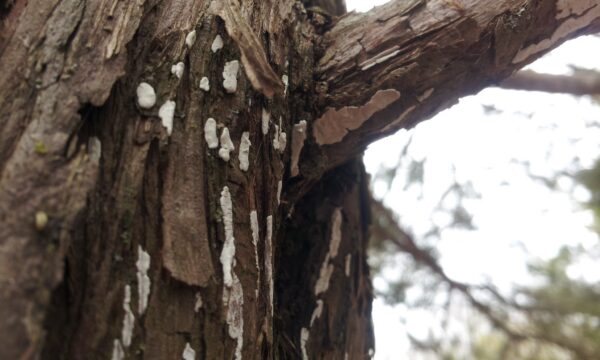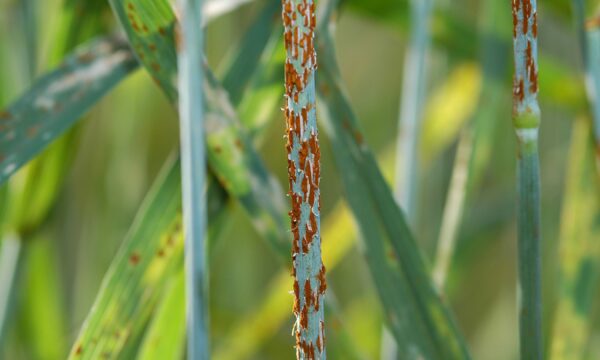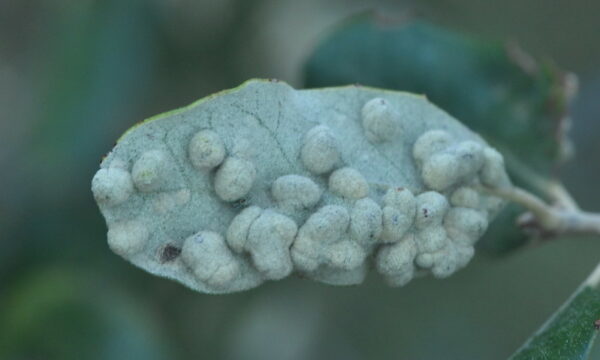Scientists in the UK and Uganda are developing a genetically modified (GM) variety of banana that is resistant to nematode worms, which account for a high percentage of banana crop losses in Africa. It is estimated that the losses of crops due to nematodes amounts to $125 billion a year. Currently, nematodes are controlled using pesticides that can be toxic to humans and other organisms. The project, run by the Africa College at the University of Leeds and funded by BBSRC and DfID, has provided training to African-based scientists and aims to conduct trials of the banana plants in several African countries.
Bananas and plantains (Musa spp.) are a staple crop for many people in developing countries, and the main pests to this genus are root parasites, specifically nematode worms. There are many species of nematode that affect the roots of the crops in different ways. Some species feed on the roots, taking resources from the plant, and some burrow through the roots, causing necrosis and root rot, making the roots unstable.
The current method of control is to use nematode-specific pesticides (nematicides). These are expensive and can be damaging to the health of agricultural workers as well as being toxic to other mammals and invertebrates. They can also be environmentally damaging by contaminating water sources. It is difficult to control nematodes through chemical means because there are so many different species, which cannot always all be targeted with one chemical.
Biotechnology has been used in many crop species to introduce new genes to improve their hardiness against biotic and abiotic factors such as insect herbivores, drought, and high soil salinity.
Cultivated banana plants reproduce vegetatively, i.e. cloning themselves to produce offspring plants, so become genetically isolated because they don’t mix up their genes with other individuals. This can hinder genetic lines of a species because they have a reduced ability to evolve resistance to pests or pathogens. It also means that farmers can’t cross banana plants to produce new resistant varieties. By using genetic modification, new varieties of banana can be produced that have resistance to nematodes. The introduced genes would code for proteins that damage the nematodes when ingested or would disrupt chemoreceptive behaviour. This would remove the need to use nematicides and would reduce crop losses from nematodes.

Banana root damaged by the burrowing nematode, Radopholus similis © Michael McClure, University of Arizona, Bugwood.org
There are several difficulties to overcome when developing GM varieties such as these. There is an issue of biosafety – making sure that the crop product is safe for consumption, particularly in this case where bananas and plantains make up a large part of many people’s diet. Tests also need to be done to see how the defence mechanism against nematodes affects non-target invertebrates. The end product needs to be resistant to all the different types of damaging nematode too.
One way in which growing GM bananas is safer than growing other GM crop species is that the banana plants are sterile so they don’t transfer pollen (and therefore the newly introduced genes) to other species.
In order for the technologies developed in countries such as the UK and USA to benefit farmers in developing countries, they need to be fairly shared. The University of Leeds has already donated the use of several nematode control GM patents to be applied in Africa. Field trials of the GM banana plants should better inform the researchers of how these plants can be integrated into the African agricultural system, and help them to find out whether this is a successful method that can be used in the fight against banana-attacking nematodes.
Sources:
Atkinson, H.J. (2003) Strategies for resistance to nematodes in Musa spp. Available from: http://www.musalit.org/pdf/IN090748_en.pdf
Frood, A. (2011) Defeating nematode worms with GM bananas. Available from: http://www.bbsrc.ac.uk/news/food-security/2011/111005-f-defeating-nematode-worms-gm-bananas.aspx
2 Comments
Leave a Reply
Related News & Blogs
Control of scale insects in fruit trees
Scale insects are a diverse group of small, sap-sucking insects with flat or domed shells. Their lack of mobility and protective shell make them difficult to manage. This explains why many scale species are commercial agricultural pests. Scales pierce…
29 June 2023






A new paper from the same researchers: http://dx.doi.org/10.1111/j.1364-3703.2012.00792.x.
[…] losses brought on by microscopic worm parasites, called “nematodes.” Such parasites infect plants from the soil and are the cause of an over 12% reduction in global agricultural production…a loss of over […]